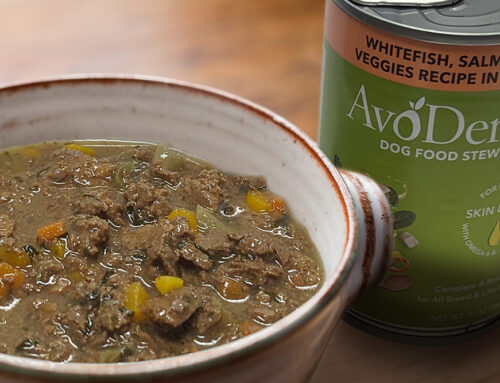No one wants their dog to feel pain if they can spare it. But many dogs experience many of the same common and complex health concerns as their humans. When a dog is constipated, it can lead to feelings of helplessness in pet owners, and discomfort for your pet. This blog post will share causes and signs of constipation in dogs, as well as tips on how to help a constipated pet.
Only licensed veterinarians can diagnose medical conditions. If you think that your pet is sick, injured or experiencing any kind of physical distress, please contact a veterinarian immediately.
What causes constipation in dogs?
Veterinarians classify more complex causes of constipation in dogs into three categories: intraluminal, extraluminal, and intrinsic. The word ‘intraluminal’ refers to obstruction of bowel movements within the colon, including inflammation, abnormal growths, and foreign objects. ‘Extraluminal’ can refer to causes that block bowel movements from outside of the colon, such as a pelvic injury or other painful conditiona that make it difficult to pass stool.1
Lastly, intrinsic causes of constipation in dogs covers a broad range of hormonal and neurological diseases that can affect digestive tract.1 Dogs may become constipated due to a medicine to treat these injuries and illnesses, or as a side effect of the injury itself.
The most common cause of constipation in dogs is ingestion of irritating or indigestible substances.1 Dogs with long hair or a habit of excessive licking or grooming expose themselves to bacteria and other agents in their surrounding environment that may irritate the stomach or the gastrointestinal tract.
Constipation in dogs is also commonly caused by dehydration. Healthy dogs should be drinking about an ounce of water per pound of body weight each day. Though staying hydrated can prevent constipation in dogs, there is such a thing as drinking too much water. Polydipsia can also be an early indicator of other health issues in dogs.
Dogs can also experience constipation as the result of an overly sedentary lifestyle. Common pet health practices suggest that dogs go for a fifteen-minute walk twice a day to regulate bowel movements and contribute to overall quality of life.
Signs of constipation in dogs:
Constipation in dogs is marked by the inability to pass a bowel movement for more than 24 hours. Most dogs produce feces at least once a day; many of them have bowel movements that correspond to the number of daily feedings.1 Hard, dry stools that resemble pebbles in texture is also a common sign of constipation in dogs, also known as concretion.
Aside from the clear signs of constipation, your dog may also experience one or more of the following symptoms.
- Signs of pain while attempting a bowel movement: hunched posture, tense abdomen, cry of distress1
- Blood in the stool, or passing blood without stool
- Vomiting
- Lethargy
- Lack of appetite
- Difficulty urinating
- Some constipated dogs will have a tense, painful abdomen and cry or growl if you press on their stomach or lower back. Call your veterinarian if your dog fails to produce a bowel movement within 48 to 72 hours of a previous bowel movement.
How to help a constipated dog:
Some pet owners experience success by feeding a dog with constipation ONE of the following foods:
- Canned pumpkin: To help your dog with constipation, you can try feeding them pumpkin, which is high in fiber and water content. You can use either fresh pureed pumpkin or canned pumpkin, but be sure to avoid purees and pie fillings with added sugar, as these often contain a compound that is toxic to dogs.
- Milk: Like humans, many dogs are lactose intolerant. However, a small bowl of milk can act as a laxative for canines in a crisis. Consult your vet before giving your dog milk to help with constipation.
- Olive or coconut oil: a natural fruit, vegetable, or mineral oil can help lubricate stool for dogs suffering with constipation.
- Cooked green beans are rich in fiber, helping to clean the colon and stimulate bowel movements. This small and tasty vegetable doubles as a unique treat for dogs with constipation.
- Ginger and broth: Many humans turn to ginger to help with indigestion, and this remedy can have equally helpful effects for dogs with constipation. Prepare a half-cup of chicken or beef broth with a 1?4 teaspoon of ginger to help a constipated dog.
Utilizing more than one of these home remedies at a time can lead to severe diarrhea and dehydration. Before trying a home remedy, rely on your vet as a resource in helping a constipated dog. A trip to the doctor creates an opportunity to perform tests that may catch and prevent more serious health issues related to constipation in dogs.1
Help your dog avoid constipation by maintaining a regular schedule of exercise. A healthy level of activity will ensure that the colon receives enough blood flow to function properly. Dogs with constipation should also partake in a fiber-ful diet. If your dog experiences constipation often, you should consider adding canned food to their diet to increase the amount of moisture in the food they intake.





